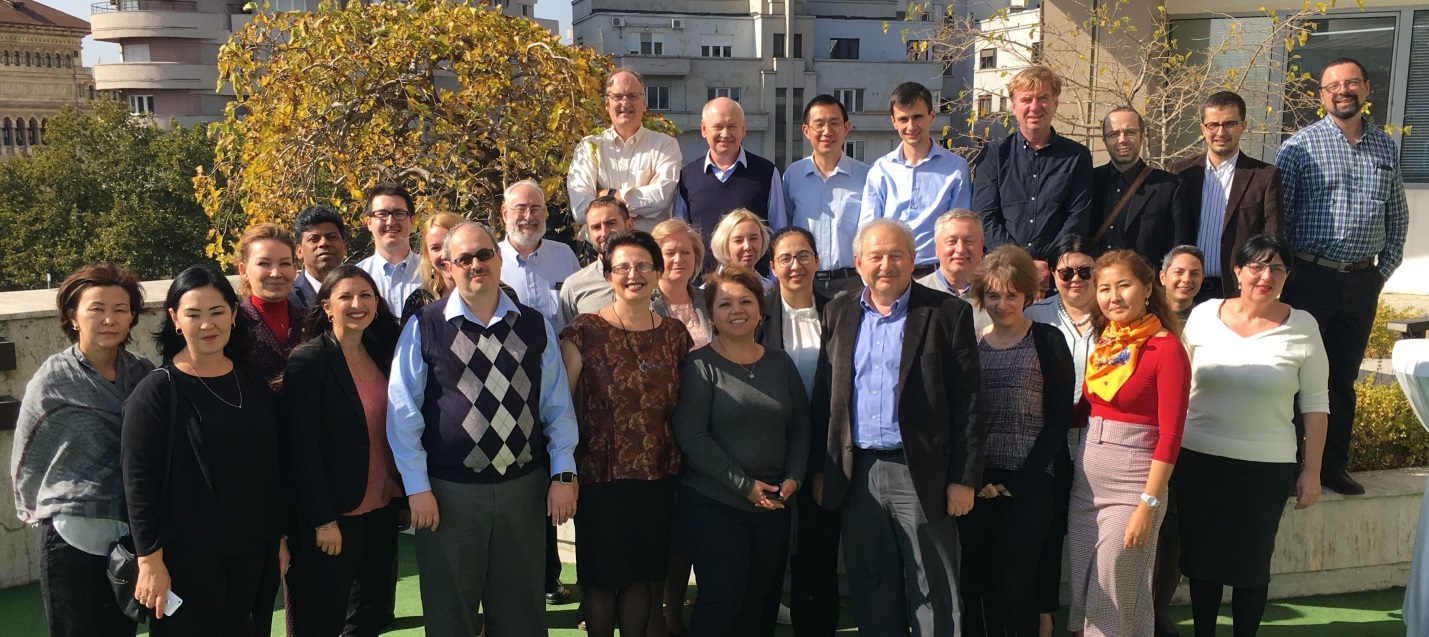The 5th NIH/NIAID/OCICB and ISTC TB Steering Committee Meeting in Bucharest, Romania through October 15-17, 2018

The 5th Annual Steering Committee Meeting of the International TB Portals Consortium took place in Bucharest, Romania, on October 15-17, 2018. Participants presented 9 countries; Belarus, Moldova, Romania, Georgia, Azerbaijan, Kazakhstan, India, China and USA.
All countries made contribution to the TB Portals, and, at the same time, each of them has a special “tip”, a research accent. For example, some countries are focusing on radiology investigations and visualization of CT and chest X-ray with further analysis, others on surgery samples of TB lesions, children TB, and contacts’ investigations and so on. Together with metadata collection and upload, broad investigations of MTB genome is ongoing, using whole genome sequencing and deep sequencing technologies.
During the meeting countries presented updates for 2018 and shared with the colleagues their achievements. The US colleagues presented data analysis and entry update, G-AP update, TB Portals Imaging, data quality and new ideas. A major part of meeting was devoted to radiology. Dr. Wang from Hong-Kong presented examples of reliable identification of pulmonary MDR-TB by radiological signs, Romania presented comparison of radiologic scores in susceptible and MDR-TB patients. Belarus colleagues presented UUIP Genomic update and data entry update. The US colleagues presented “virtual reality”: a “trip” in the human lung in 3D, in future this will allow to investigate TB lesions visually.
A big part of the meeting was devoted to various aspects of data collection, definitions, attribution, sharing policies and further use of TB Portal. The standardization of data has been discussed in detail by all participants. The participant from Georgia, Dr. Shubladze Nata explained the principles of interpretation of the line probe assay and the standardized definitions of each point. It was decided to work together at the definitions in the Portal in order to bring all of them to the international standards. Participants also discussed adverse effects: how to present them in the TB portals and which datasets will be needed for this. The US colleagues also conducted a short data exploration using TB portal, practically showing how to analyze these data.
The scientific agenda for 2019 was also discussed.
The meeting concluded to proceed the work of creation the universal global anonymized database with standardized data definitions and full picture of each case. This database will serve as a unique source of information for scientists from all countries and will help to analyze data for research.
.jpg)

